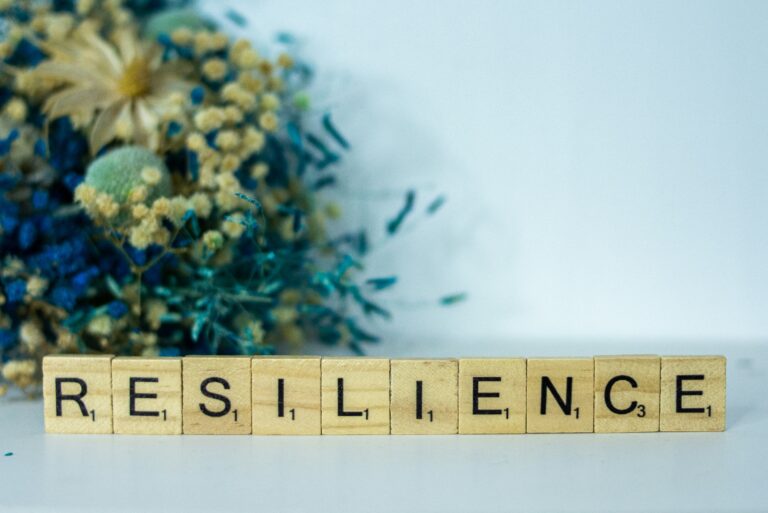Like most trauma, if it’s not addressed in a healthy manner, it can affect the next generation, our children. Layoff is a professional trauma, it has impacts beyond the job loss, financial impact, along with professional identity crisis, and even marital challenges.
The burden goes beyond the individual, and the experience is felt through generations. Take for example, children growing up during the great depression – they have/had strong sense of frugality, resilience, and focus on family and community. They exhibit strong work ethic, are risk averse, appreciation stability, strong sense of adaptability, compared to previous and post great depression children.
These events had a similar impact on children who grew up during the great recession of 2007-2009, more entrepreneurial, creative, less loyal to a company, self-protective, etc.
Those were nationwide events that impacted a large community, but the similar impact can be seen in family units where a parent experiences abrupt job loss. It shakes their foundational core, and can have positive and negative impact on the child’s success and development.
Spoken or hidden from the children, they are more intuitive than we give them credit, they may not understand the underlying stress that has befallen the family, but they will experience and adapt to the stress which can be seen through their academic success, health, and various other long-term effects.
If you or your partner are navigating this challenging time, please know you’re not alone. This post is here to explore how job displacement can impact your children, why it’s unique, and most importantly, how you can work together to build resilience as a family.
Disclaimer: I’m a career coach/counselor with a Masters degree in Marriage and Family Therapy. I’ve worked with couples and families, and have specialized in helping people going through complex challenges of career development.

Ripple effects on children's well-being
This post isn’t to add to the challenges you’re going through after the job loss, it’s to support you in understanding how to recover from the professional trauma of losing your job abruptly. Children are incredibly perceptive, they can pick up on parental stress without any explicit discussion – they are masters of observation and modeling silence during these trying times will not help them.
We want to protect our children, no matter the challenges we face, we have a responsibility to support their growth and inherent desire to protect them. In doing so, we may believe if we don’t tell the children then they won’t feel the stress, which is not accurate. It’ll impact their sense of security, trust, and well-being, and they’ll start acting out before they aren’t getting the truth (a version of it*) that can help them make sense of the stress they are seeing within their parents.
*I mention “a version of..” the truth – because we need to communicate with our children at their level of understanding.
The delay of information can have severe impact on a child, so it’s important to prepare yourself to have a family discussion where they can hear the reason for the added family stress and create opportunities to ask their questions, while reassuring them of your support.
For example, I entered the workforce at the beginning of the great recession – I saw many of my colleagues, friends, mentors, family members and community lose their jobs. I grew more anxious about my prospects, developed a sense of independence and self-reliance, and it destroyed my trust in corporate loyalty.

Academic hurdles during and after layoff
One of the most concerning ripple effects of parental job loss is on the child’s academic performance, their grades might go down, they may act out in school, it can create more serious challenges of where the child may need to repeat a grade (Steven and Schaller, 2011). Here’s a few reasons why:
- Reduced resources: Less income means fewer resources like books, school supplies, tutoring, social activity participation, less involvement in after-school programs, etc.
- Increase at-home stress: The stressful environment at home: financial, relational, social, marital, etc. all compound in the home and can lead to the child not feeling comfortable and psychologically safe to express themselves. Leading to difficulty in concentration and learning.
- Parent-child interaction: As we’ve established, children are highly perceptive. Though the parent may have more time to give their children, it may not be quality time because the parent is carrying several layers of emotional burden, psychologically distant, mourning the loss of a job, financial flexibility, etc. These leading to less positive engagement with the parent.
Knowing these can help you develop a closer relationship with your children and help them build resilience while you and the whole family is navigating through these challenges.

Child's health impact from parental job loss
We’ve talked about how the parental job loss can have mental health challenges to a child, anxiety, depression, exclusion from social activities, self-esteem, etc. can all emerge when the child doesn’t have the proper support to navigate through this hardship.
Research suggest that paternal job loss and maternal job loss have different effect on children (Steven and Schaller, 2011). Notably, parental job loss have a more harmful impact on the children’s physical and mental health, leading to anxiety and depression, particularly with low-socioeconomic status families. While, maternal job loss have a less severe impact on the children’s well-being.
This may be due to the “breadwinner” effect we discussed in our previous article – gendered and societal expectation of men and men’s primary identity.
Here are the key factors that contribute to health impact after a job loss:
- Reduced income for essential: Less money mean less nutritious food, fewer preventive healthcare visits, and difficulty affording necessary medication.
- Loss of health insurance: Gap in healthcare coverage can have severe impact on family and children when there is regular health challenges. People may choose delaying visit to the pediatrician or forgo medical care and hope “it’ll go away”.
- Unmanaged parental stress: Unmanaged parental stress can lead to unhealthy coping mechanisms: anger, depression, anxiety, increased alcohol/substance use, etc. Leading to modeling unhealthy coping skills for the children, increasing anxiety and depression within the child as they may take on caretaker role.

Building resilience with your children during a job loss
The “intergenerational scarring” is an economical shock to the family unit that is passed down from parents to children and can go on for several generations, where the impact of job loss can result in reduced educational attainment, and lower earning in adulthood. This is a personal and societal issue, when the children’s future is diminished because of outside control. Further illustrating how being laid off is a professional trauma.
But you can help your child become more resilient through this hardship:
- Communicate with your child: Be honest and kind. Explain the changes in a way your child can understand, provide them time to process and leave room for them to ask questions, reassure it’s not their fault and they are loved, and build confidence this situation will pass.
- Keep routine: Shock can affect how your kid processes information and this trauma. Sticking to their routine of mealtime, bedtime, school schedule, etc. can provide a sense of security amidst uncertainty.
- Prioritize your mental health: I can’t stress this enough. How you process will be the model of how your children learn to process. Focus on your well-being, seek support for your stress, anxiety, depression, job search, etc. the quicker you get support the faster and easier it’ll be for you and your family. Prioritize your mental health.
- Focus on family: Spend quality time together, engaging in free or low-cost activities that bring you job and strengthen your connection with create a safe and engaging environment for your children. Going to the library is a great way to connect, educate, and upskill; community parks are a good way to get exercise, etc.
- Utilize community and local resources: You don’t need the greatest, you need to reconnect with your community and ask for support/help. Schools might have support programs, local community centers can provide guidance, unemployment benefits are well-resourced, etc.
- Encourage expression: Create a safe space for your children to talk about their feelings and ask you questions about this journey. Listen actively and validate their emotions – this is crucial for their psychological and mental development.
- Maintain hope and positivity: This is tricky if you’re feeling anxious/depressed, but know that your attitude is contagious. It’s okay to feel and express your anxiety, and project that there is a sense of hope and determination that this is temporary. Owning the emotions and celebrating the effort is a key component of building grit.
- You are not alone: There’s an entire community of family, friends, local community services, career coaches, counselors, etc. are ready to support your journey and make it easier and faster for you to recover. You don’t have to go at it alone.

Protect your children's future
Parental job loss is a profound challenge that extends its reach far beyond the immediate financial impact, casting a long shadow over children’s academic achievement, health, and long-term.
Building resilience or grit with our children is tough, specially when we are going through a trauma too. Including them in your stress, positively, can have a healthy outcome. Recognize that children are already resilient, and most of the time they will appreciate the quality time they spend with you.
Working with a career counselor / coach can help you navigate the complexities of layoff and lead you into a greater sense of security, confidence, and have you re-enter the workforce faster, while maintaining a healthy home life.
Schedule a free consultation to see how I can help:
- Reduce your stress: provide personalized advice and strategic guidance for your job search. You are the model for your children.
- Accelerate your job search: Job search is complex but with expert guidance you can start securing interviews faster. A quicker return to financial stability can benefit your entire family.
- Rebuild your confidence: job loss can shake your self-esteem, career counselors can provide emotional support and help you rebuild confidence while making positive parenting impact.
- Explore new paths: Career coaches have a wide range of professional development background and they can show you creative ways to live your purpose and use your skills to re-enter the professional world.

